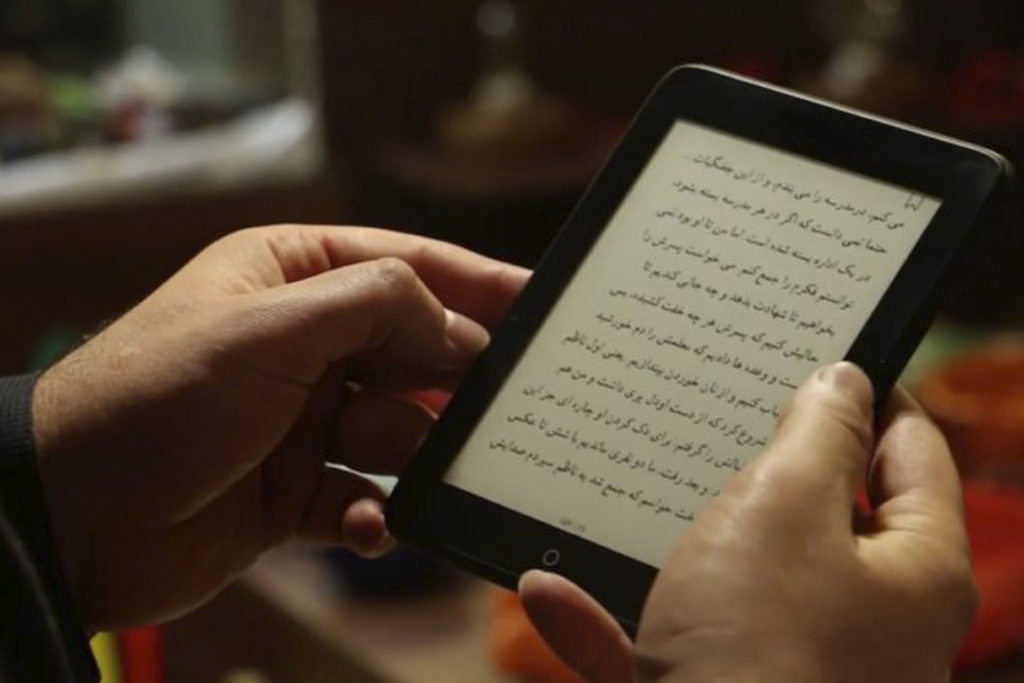The COVID-19 pandemic has affected educational systems worldwide, leading to the near-total closures of schools and universities. Nationwide school closures have disrupted the education of more than 1.57 billion students – 91 percent – worldwide, according to UNICEF.
Bahara Hussaini, 28, is an education activist from Kabul. Given the current lockdown situation, she is striving to keep the students motivated and engaged in reading and learning through her initiative called “The Bookies”. The Bookies is a volunteer-run initiative with the aim of extending the culture of reading among Afghan children and school students. Since 2018, she has conducted book reading and storytelling sessions for around 300 students.
Like other countries, on 14 March, the Afghan authorities also announced that all educational institutes in the country would not open until 21 April, which later extended until the end of the Ramadan. It is being assumed that the schools’ door will remain closed for the entire educational year.
“Since almost all educational institutions are closed all across Afghanistan; students need to have another alternative to spend their time in a fruitful way.” Said Bahara.
Due to the Covid-19 outbreak, The Bookies team is not able to hold its regular in-person sessions for the students. “…Instead, we started a campaign with the message of #LetsRecommendOurFavBooks to share the top-recommended books within our network for the quarantine days. We did this campaign in social media, like Facebook, since people who are staying indoor find it the best medium to connect to the others during movement restrictions.” Bahara explains.
“Everyone is invited to recommend her/his favorite books with a short insight and introduction so that others can choose. The books could include different topics ranges from short stories, novels, and history to non-fiction, language, and personal development books.” According to Bahara. “The participants are encouraged to read the books with a critical approach. Beside this campaign, we conduct online book review sessions through video call to give the students a chance to discuss the books we have selected and share his/her personal take on the book.”
Afghanistan is among the countries with the lowest reading hours per capita in the world. Bahara believes that this is the right time to turn to books and increase our reading hours. “Afghan students rarely read books on normal days; this lockdown might be a great start to increase our reading hours. The main purpose of this campaign is to engage our members and other interested school students to spend their time positively and productively during the quarantine. Reading books can also help lower the quarantine stress and anxiety and encourages positive thinking.” Siad Bahara.
Zia, one of the participants of The Bookies, says, “I found it very effective to be connected to the other book lovers in this time of turbulence. Indeed, this is the best way to spend our time during the lockdown. We were able to share our insights about the variety of books with one another which helped us to better understand the content of the books.”
“Reading exposes you to new things, new ways, new understanding, new information, new ways to handle situations and new ways to solve them. This can compensate the education loss we bear due to school shutdown.” Said another participant.
The Afghan government also announced that, from April 11, lessons would be taught online via television and radio. However, it seems that the government and the students are still not prepared for online and remote learning and it is going to remain a challenge in the way of learning in Afghanistan during the pandemic.
This also challenges Bahara to connect with more students during the lockdown. “We understand that connecting online is a big challenge even for students living in major cities, so it would be an even bigger challenge in rural areas of Afghanistan where people do not have access to regular electricity and affordable internet or even internet at all.” According to Bahara. “However, we are doing our best to reach out to more students, as many as possible.”













